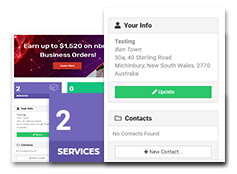In this digital era, many organisations are implementing remote work practices to stay operational and companies. For SMBs, shifting to WFH or having employees do their jobs outside the office may prove to be challenging in the initial stages. It is not easy setting up IT systems out of the workplace or finding the most effective way for teams to communicate and collaborate. If you find yourself in this situation, lookup cloud solutions and you’ll discover VoIP (Voice Over Internet Protocol), a voice communications platform that runs through the Internet.
How is VoIP useful? Beyond simple voice calls, your employees can use it for chat, video conferencing, file sharing, and other business purposes. They can connect with co-workers and customers and instantly engage in real-time.
Now, let’s explore its other advantages for remote workers.
Work From Anywhere
When users work from home or a remote location, they need the tools to perform their duties just like they would do in the office. This can be a workstation, whether it is a laptop that they take on the go, or an endpoint that enables them to access their data and applications remotely. It can also be a desk phone especially for receptionists and customer service representatives. Initially, this was difficult because teams had to move from location to location, but VoIP has changed everything.
VoIP systems run a desk phone through the Internet instead of a separate line. With this, employees can make business calls with the same number they use in the workplace instead of having to be in the office themselves. Also, VoIP integrates with smartphones, allowing users to remain connected to new tasks, incoming calls, and more.
Read: Help Your Clients Set up a Secure Remote Workforce
Greater Availability
Managing virtual and remote work teams requires the presence of supervisors. With VoIP, team leaders and managers can stay prepared and be present at the scene just as much as they would want their staff to be. Remote employees may expect their supervisors to be even more available and responsive than in physical circumstances.
A VoIP system makes sure that both remote employees and managers stay on high alert. It opens the door for consistent communications, discussions, problem-solving, questions, and feedback. This culture of high availability means that project managers will always remain accessible for their teams especially during crunch time or mission-critical situations. It eliminates the likelihood of miscommunication, misunderstanding, and staff becoming dissatisfied.
VoIP telephony supports instant messaging, direct calls, and voice calls at no extra cost. Also, you do not need dedicated networks for phones and data. These services are free as long as your teams communicate through the Internet.
Quality Assurance
Managing remote workers is not as simple as it sounds. You are probably comparing this scenario to having teams working in shared cubicles where you can easily track productivity and provide instant training or support when necessary. You want a solution that breaks down the barriers to quality assurance that WFH or remote work programs present, and VoIP is your answer.
You can record calls to guide staff or address issues and receive abandoned call alerts for customers who hung up before employees could attend to them. Invest in a VoIP solution that offers a single pane of glass showing real-time data about which team member is on the phone with whom. Your leadership teams can even remotely manage calls side-by-side their staff, move agents in and out of queues, coach employees, or listen in to assess performance.
VoIP works on the cloud which means it is never at risk of being out of communication due to hardware complications. Great VoIP service providers usually have solid uptime track records and can reroute calls in case of technical failures or outages.
Conclusion
VoIP has the potential to replace traditional phone systems in the future of work. Every business can then look forward to happier remote workers, streamlined workflows, improved productivity, and higher profitability. Most importantly, the flexibility of VoIP will make it effortless to adapt to any work or market-related situation. COVID-19 is such an example, and it is only a matter of time before we see further advancements in VoIP technology.
 Contact us
Contact us  Partner Login
Partner Login  Service Status
Service Status 


 November 10, 2020
November 10, 2020
 Raymond Viola
Raymond Viola
 3 min 30 sec
3 min 30 sec